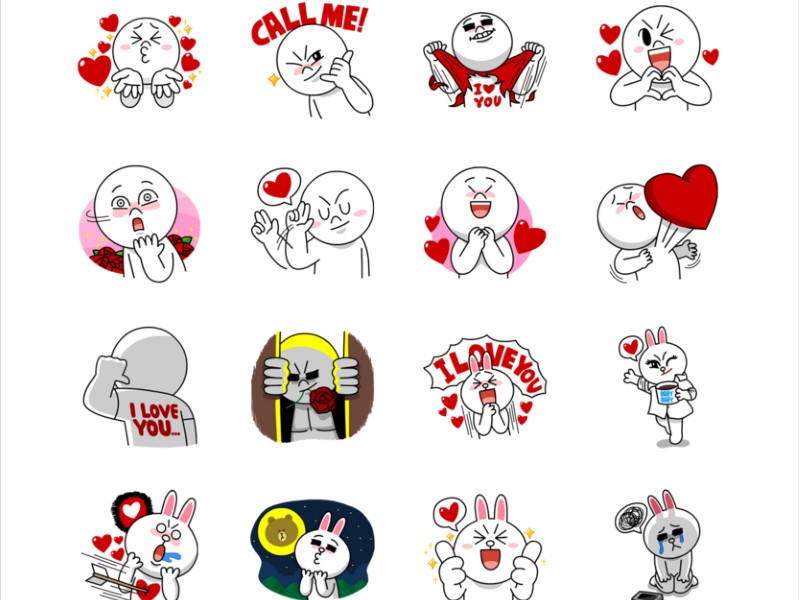Indonesia Warns Messaging Apps to Drop Same-Sex Emoticons

In a letter to the president, the New York-based group said the government should publicly condemn officials who make "grossly discriminatory remarks" against lesbian, gay, bisexual and transgender people. People of such sexuality are commonly known by the abbreviation LGBT.
"President Jokowi should urgently condemn anti-LGBT remarks by officials before such rhetoric opens the door to more abuses," said Graeme Reid, LGBT rights director at Human Rights Watch. "The president has long championed pluralism and diversity. This is an opportunity to demonstrate his commitment."
A presidential spokesman said the government is still waiting for the original letter and cannot comment on it until it has seen the letter.
The government move against the instant messaging apps comes after a social media backlash against the popular smartphone messaging app Line for having stickers, which are an elaborate type of emoticon, with gay themes in its online store.
Information and Communication Ministry spokesman Ismail Cawidu said Thursday that social media and messaging platforms should drop stickers expressing support for the LGBT community.
"Social media must respect the culture and local wisdom of the country where they have large numbers of users," he said.
Homosexuality is not illegal in Indonesia, but is a sensitive issue in the Muslim-majority nation of more than 250 million people. At the same time, most of Indonesian society, which follows a moderate form of Islam, is tolerant, with gay and transsexual entertainers often appearing on television shows.
Line on Tuesday said it had removed all LGBT-related stickers from its local store after receiving complaints from Indonesian users. Twitter and Facebook had exploded with criticism of Line and its competitor WhatsApp for containing gay content.
Ismail said the government would tell WhatsApp, which is owned by Facebook, to do the same as Line.
Last month, Research, Technology and Higher Education Minister Muhammad Nasir said openly gay students should be banned from the University of Indonesia's campuses. His statements followed controversy over news a sexuality research center planned to offer counselling services for students.
Nasir's statement sparked public controversy in Indonesia for weeks, with objections from human rights groups but support from the Indonesian Ulema Council, an influential board of Muslims clerics.
Gay rights advocate King Oey urged the government to respect international treaties signed by Indonesia protecting the rights of minorities and women.
"Gays and lesbians are not illegal in Indonesia," Oey said. "We urge people who are concerned with human rights to not sit by silently."
In 2014, lawmakers in Aceh, a conservative Indonesian province, passed a law that punishes gay sex by public caning and subjects non-Muslims to the region's strict interpretation of Islamic sharia law.
And in October 2015, Sharia, or Islamic law, police in Aceh arrested a pair of young women for "hugging in public."
Catch the latest from the Consumer Electronics Show on Gadgets 360, at our CES 2026 hub.
Related Stories
- Samsung Galaxy Unpacked 2025
- ChatGPT
- Redmi Note 14 Pro+
- iPhone 16
- Apple Vision Pro
- Oneplus 12
- OnePlus Nord CE 3 Lite 5G
- iPhone 13
- Xiaomi 14 Pro
- Oppo Find N3
- Tecno Spark Go (2023)
- Realme V30
- Best Phones Under 25000
- Samsung Galaxy S24 Series
- Cryptocurrency
- iQoo 12
- Samsung Galaxy S24 Ultra
- Giottus
- Samsung Galaxy Z Flip 5
- Apple 'Scary Fast'
- Housefull 5
- GoPro Hero 12 Black Review
- Invincible Season 2
- JioGlass
- HD Ready TV
- Laptop Under 50000
- Smartwatch Under 10000
- Latest Mobile Phones
- Compare Phones
- Tecno Spark Go 3
- iQOO Z11 Turbo
- OPPO A6c
- Samsung Galaxy A07 5G
- Vivo Y500i
- OnePlus Turbo 6V
- OnePlus Turbo 6
- Itel Zeno 20 Max
- Lenovo Yoga Slim 7x (2025)
- Lenovo Yoga Slim 7a
- Lenovo Idea Tab Plus
- Realme Pad 3
- Garmin Quatix 8 Pro
- NoiseFit Pro 6R
- Haier H5E Series
- Acerpure Nitro Z Series 100-inch QLED TV
- Asus ROG Ally
- Nintendo Switch Lite
- Haier 1.6 Ton 5 Star Inverter Split AC (HSU19G-MZAID5BN-INV)
- Haier 1.6 Ton 5 Star Inverter Split AC (HSU19G-MZAIM5BN-INV)

















